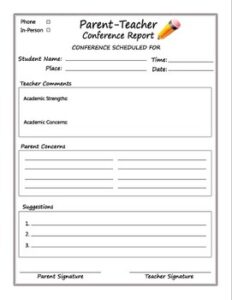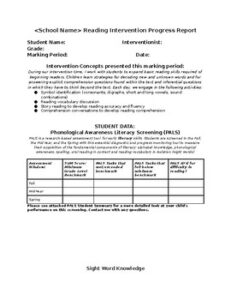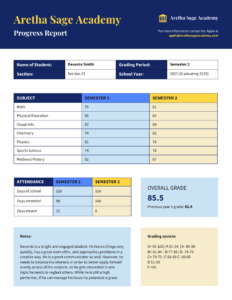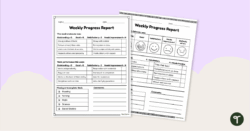Parent teacher meetings are cornerstones of a child’s educational journey, offering a vital opportunity for educators and guardians to connect, share insights, and collaborate on a student’s progress. These conversations are incredibly important for fostering a supportive learning environment, ensuring everyone is on the same page regarding achievements, challenges, and future steps. Effective communication during these times helps bridge the gap between home and school, creating a unified front for the child’s development.
However, anyone who has attended or led these meetings knows how much information is exchanged in a short period. It can be challenging to recall every detail, every suggestion, or every specific observation once the meeting is over. Parents might forget a particular academic goal, and teachers might struggle to remember every parent’s unique insights across multiple student interactions. This is where a structured approach becomes invaluable.
That’s precisely why having a reliable parent teacher meeting report template can make all the difference. It serves as a comprehensive record, ensuring that key discussions, observations, and action plans are clearly documented. This not only aids memory but also provides a consistent reference point for all parties involved, promoting better follow-up and accountability throughout the school year.
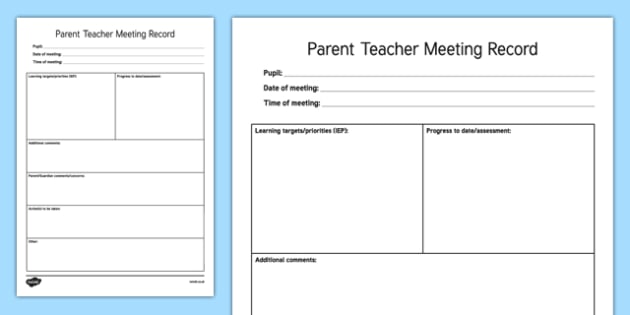
Building a Comprehensive Meeting Report
Creating a well-designed report form is crucial for capturing the essence of every parent teacher conference. This isn’t just about jotting down a few notes; it’s about systematically documenting a holistic view of the student, covering academic, social, and emotional aspects. A good template acts as a guide, prompting discussions that might otherwise be overlooked and ensuring a thorough review of the child’s experience in the classroom. It fosters a more organized and productive discussion, allowing both teachers and parents to arrive prepared and leave with a clear understanding.
Think of it as a roadmap for the child’s progress. It helps to track patterns, identify areas where extra support might be needed, and celebrate successes. Without a structured format, critical information could easily be missed or misinterpreted, leading to miscommunications or ineffective strategies. A standardized approach also ensures fairness and consistency in reporting across all students, providing a clearer picture for school administration if needed.
Moreover, a detailed report is an excellent tool for continuity, especially when a student transitions to a new grade or teacher. Previous reports offer valuable context and insights into their learning style, personality, and any specific needs, making the transition smoother and more effective. It allows new educators to quickly get up to speed on a student’s history and tailor their approach accordingly from day one.
When designing your parent teacher meeting report template, consider what truly matters for a complete understanding of the student. It’s not just about grades, but also about the soft skills, peer interactions, and overall engagement within the school community. The aim is to paint a vivid picture that reflects the child’s journey in its entirety, providing actionable insights for growth.
By dedicating time to create a robust and easy-to-use template, you’re investing in more effective communication and ultimately, in the student’s success. It simplifies the post-meeting follow-up, offering a tangible document to refer back to and share as needed. This proactive step can transform routine meetings into powerful collaborations, strengthening the partnership between home and school.
Key Sections to Include in Your Report Template
To ensure your report is thorough and useful, here are some essential elements to incorporate:
Leveraging Your Template for Better Outcomes
Once you have a solid parent teacher meeting report template, the real benefit comes from consistently using it. Before a meeting, a teacher can quickly fill out the student’s academic and behavioral progress sections, noting specific examples or observations. This preparation not only makes the meeting more efficient but also ensures that the discussion is evidence-based and focused, preventing generalizations and providing concrete talking points. For parents, receiving a copy of this completed report after the meeting means they have a clear summary to review at home, helping them reinforce learning and support their child effectively.
The report also serves as an ongoing record that can be revisited throughout the year. If a concern arises later, or if a student shows significant improvement, both teachers and parents can refer back to the initial report to track progress or identify patterns. This continuity is invaluable for understanding the child’s development over time and making informed decisions about interventions or enrichment opportunities. It transforms a singular meeting into part of an ongoing dialogue, building a cumulative narrative of the student’s educational journey.
Furthermore, a well-structured template encourages a collaborative approach. The “Action Plan” section, for instance, explicitly outlines responsibilities for both school and home, fostering a sense of shared ownership in the child’s education. This shared document becomes a pact, a mutual understanding of how everyone will work together to help the student thrive. It’s a testament to the power of organized communication in creating a unified and supportive educational environment.
Adopting a robust reporting system for parent teacher conferences is a powerful step towards enhancing educational outcomes for every student. It fosters an environment of transparency and mutual understanding, ensuring that every conversation contributes meaningfully to a child’s development. By having all pertinent information at your fingertips, both educators and guardians can work together more effectively, creating a stronger support system for young learners.
Embracing the structure offered by a well-designed report helps solidify the partnership between home and school. It means every parent teacher discussion is purposeful, documented, and actionable, ultimately contributing to a more engaged and successful learning experience for the children we all care about.
